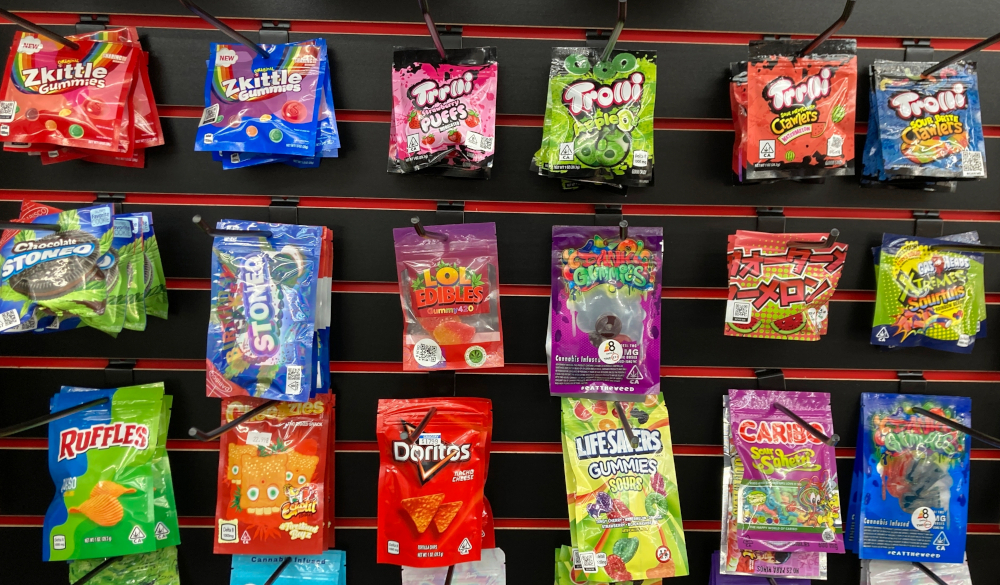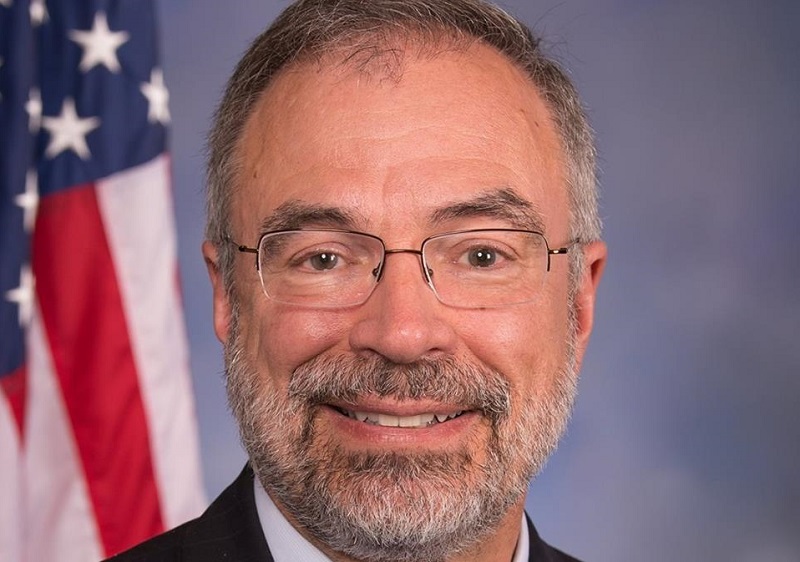A ban on intoxicating hemp may not wait for the next U.S. Farm Bill, as a measure that could remove the often unsafe products from the market has passed out of a key U.S. congressional committee and could be in place by October.
The House Appropriations Committee last week approved a broad measure that covers 2025 funding for farming, the U.S. Food and Drug Administration (FDA) and various other agencies. The measure includes provisions similar to those proposed for the upcoming U.S. Farm Bill that would rein in delta-8 THC and other psychoactive hemp-derived substances.
“We’ll continue working on this and get the bad actors out, the ones who are not…converting some of that to delta-8, which is a dangerous substance,” said Rep. Andy Harris, a Maryland Republican who authored an amendment to the spending bill.
Multi-$billion market
A flourishing gray market has developed for the products, which have widely spread as a result of a loophole in the 2018 Farm Bill, an historic measure that removed hemp from the dangerous drugs category. Many of the synthetic, “high”-producing products, which are marketed as an alternative to marijuana, have been found to be a threat to public health. They remain unregulated, an open door to nefarious actors who have sparked a multi-billion dollar market for the intoxicating substances.
In addition to delta-8 THC – the most popular of the compounds – the measure approved by the appropriations committee last week would prohibit delta-10 THC, THC-O-acetate, HHC, THCP. The spending bill also addresses hemp-derived THCA, a precursor to delta-9 THC, which turns into delta-9 when burned. Some producers are turning out highly concentrated THCA hemp buds which are also widely available.

Most of the intoxicating hemp compounds at issue are made by putting hemp-derived CBD through a synthetic process to produce the highly concentrated intoxicants. Products containing them are sold in convenience stores, hemp shops, bodegas and other retail outlets, and are often marketed under knock-offs that mimic well-known brands.
Delta-9 alternative
The effects of the psychoactive hemp substances are similar to those produced by delta-9 THC, the intoxicant found in marijuana. Products containing the substances, which are known among consumers as “diet weed,” “marijuana light,” or “gas station pot,” are sold in the form of gummies and other edible treats. Regulators and consumer groups have criticized the producers for bright packaging motifs that appeal to children.
The Harris amendment to the spending bill calls on the FDA to look into health concerns regarding hemp-derived cannabinoid products, and urges the agency to “assert a stronger commitment to identifying lawful federal regulatory parameters that will protect the public health, such as labeling requirements on all hemp-derived products; testing procedures and standards to ensure product compliance and adverse event reporting; packaging requirements to prevent marketing to minors; and mandatory age limits for these products at the point of purchase.”
Do no harm?
After over-the-counter CBD extract health aids boomed and then busted beginning in 2019, companies left holding backlog CBD stocks started selling them to the dodgy producers of the intoxicating compounds.
“It’s a psychoactive substance, so we’ll continue to work on that. We do not want to harm the people who are the good actors, and most of them are the good actors,” Harris said.
The measure would also disallow non-psychoactive CBD from containing any “quantifiable” amount of THC. CBD itself, which is extracted from hemp flowers, is also unregulated by the U.S. Food & Drug Administration (FDA), which has said it does not consider hemp-derived CBD safe enough to be sold lawfully as a dietary supplement.
Speedier crackdown
The next Farm Bill, originally the 2023 version of the five-year legislation that has been delayed, is not expected to be finalized until the end of this year or the beginning of next. The spending bill passed out of committee last week would speed up a crackdown on the products because there is strong incentive for Congress to act on appropriations before the new fiscal year begins on Oct. 1.
Provisions in both the spending bill and the new Farm Bill would close a loophole in 2018 Farm Bill by distinguishing between intoxicating cannabinoid extracts made from hemp flowers and “industrial hemp” – food in the form of grain, and products made from the plant’s versatile fibers.
By contrast, language in the 2018 Farm Bill set out an all-inclusive definition for industrial hemp that covered all parts of the plant and any derivatives – thereby failing to anticipate the emergence of the synthetic intoxicants.
States scrambling
In the absence of federal laws or rules to govern the hemp intoxicants, states throughout the U.S. meanwhile are working to control the runaway market. Recreational and medical marijuana stakeholders have piled on, arguing the hemp intoxicants represent unfair competition because those who produce them are not burdened by rules and fees in states that have legal marijuana markets.
The FDA has repeatedly warned consumers about hemp-derived intoxicants, noting that the unsafe products may contain harmful chemicals, and should be kept away from children and pets.
Earlier this year, top law enforcement officials from 20 states and the District of Columbia signed on to a bi-partisan letter urging Congress to use the upcoming Farm Bill to address the spread of the intoxicating hemp products.”
Effort to block pot funds
In a separate move, the House Appropriations Committee last week voted to block the Biden Administration’s effort to move cannabis from Schedule I to Schedule III under federal law. The committee approved an amendment to a Commerce, Justice, Science, and Related Agencies funding bill that would block the Department of Justice from using any federal funds to reschedule or deschedule cannabis under the U.S. Controlled Substances Act.

